Cutting-edge films from around the world
The Sydney Film Festival gets under way on June 7 and will feature 288 films from 59 countries over 12 days. Don Perlgut looks at some of the films and documentaries with Jewish connections.
The Sydney Film Festival gets under way on June 7 and will feature 288 films from 59 countries over 12 days. Don Perlgut looks at some of the films and documentaries with Jewish connections.
THIS year there are Jewish documentaries set in Australia, Germany, the United States, the West Bank and North Korea being screened in the Sydney Film Festival, as well as a delightful Palestinian-Israeli comedy and a biographical sketch of Karl Marx, one of the most famous Jews of the modern era.
The Australian-Jewish highlight is Sydney-based Su Goldfish’s feature-length documentary, The Last Goldfish. Born to German-Jewish refugees in Trinidad after World War II, young Su moved to Australia. Only when she was 14 did she begin to understand that her family is Jewish: like many survivors, her father didn’t want to talk about their family, telling her she is “the last Goldfish”.
However, Goldfish believes that there must be other relatives, and the documentary covers her 40-year search for family, ranging over more than a century of family memories and many photos that were previously unseen.
Russian-born Ukrainian film- maker Sergei Loznitsa brings a different documentary sensibility to the screen in Austerlitz, which explores themes of memory and history by using the “observational cinema” technique perfected by Jewish filmmaker Frederick Wiseman.
Loznitsa, who is based in Berlin, watches how tourists behave when visiting the Nazi concentration camps at Dachau and Sachsenhausen.
The camera captures – in black and white – how sometimes intense, often distracted tourists behave in these places in an intriguing cultural commentary.
By contrast, Citizen Jane: Battle for the City is a documentary in the best of the American tradition about New York urban planning activist Jane Jacobs.
Her book, The Death and Life of Great American Cities, became a passionate appeal for neighbourhood scale in American city building.
Citizen Jane tells the story of Jacobs’s battles with New York master builder Robert Moses, the most powerful planning “power broker” of his time. Both Jacobs and Moses were Jewish, as are many of those interviewed in the intriguing documentary.
In the German-French drama The Young Karl Marx, Haitian director Raoul Peck brings the main characters to life – Karl Marx, the founder of Communism, his wife Jenny and co-founder Frederick Engels – in engaging, even gripping ways. This film is in French, German and English.
One of the festival’s best comedies, Holy Air, comes from Israel. Writer-director Shady Srour stars as Adam, an Israeli Christian Arab living in Nazareth, who is struggling with life.
His beautiful, liberated wife is pregnant and his father is in poor health, pressing Adam to find a new way to make a living – and the idea of selling “holy air” to all the tourists is born.
The seductive, satirical film offers a delightful snapshot of life in Nazareth today. Watch out for the opening traffic jam scenes. Holy Air is in Arabic, Hebrew, English and French.
Legendary French-Jewish filmmaker Claude Lanzmann, well-known for his award-winning 1985 nine-hour documentary Shoah, returns to the screen with Napalm, a personal story about an incident that happened to him in North Korea in the late 1950s.
As part of a delegation of leftist intellectuals, Lanzmann has an intimate encounter with a North Korean nurse.
In Napalm, 91-year-old Lanzma nn returns to North Korea to reexamine his youthful self in the context of modern Pyongyang.
The documentary is highly self-indulgent but fascinating as Lanzmann poses many questions about his past while discussing life in North Korea.
A different type of documentary, Waiting for Giraffes, looks at the only operating zoo on the West Bank. It’s a quixotic quest by zoo vet Dr Sami to build up the zoo and bring in new giraffes.
In reaching out to his Israeli colleagues, the film posits hope for future friendly coexistence.
Closer to home, Melbourne Jewish director Gregory Erdstein again collaborates with his wife, writer-actress Alice Foulcher, in the Australian comedy That’s Not Me, starring Alice Foulcher and Isabel Lucas.
A previous Erdstein-Foulcher comic collaboration, the short film Picking Up at Auschwitz, equally offended and impressed audiences.
Also worth seeing is Porto, with one of the final performances by the late Jewish actor Anton Yelchin (Star Trek); Insyriated, a drama set in civil war-torn Syria starring Israeli-Palestinian actress Hiam Abbass (Lemon Tree); and Manifesto, a 90-minute version of the German-Australian multi-screen co-production in which Cate Blanchett plays 13 roles and is loosely based on the Karl Marx tract.
The Sydney Film Festival runs from June 7-18 at venues around Sydney. Bookings: www.sff.org.au

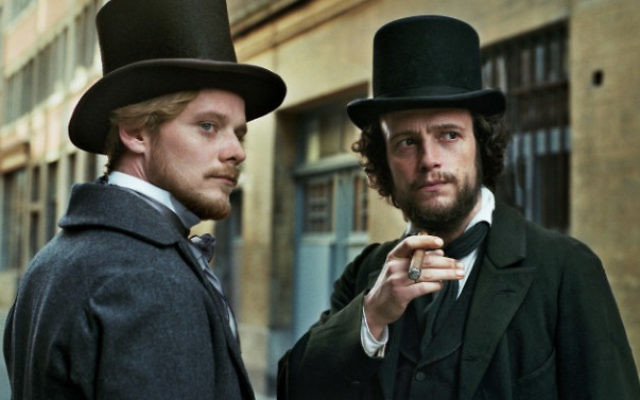
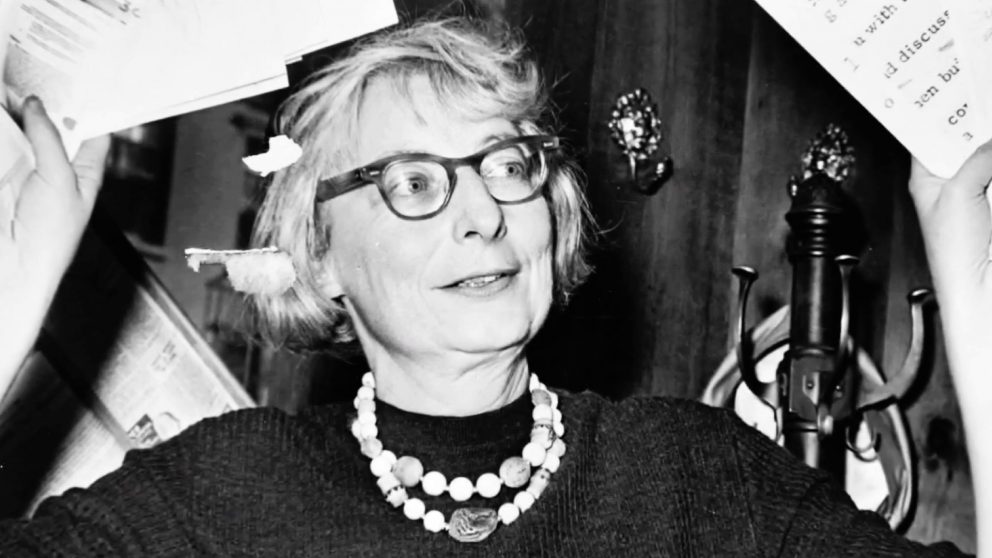
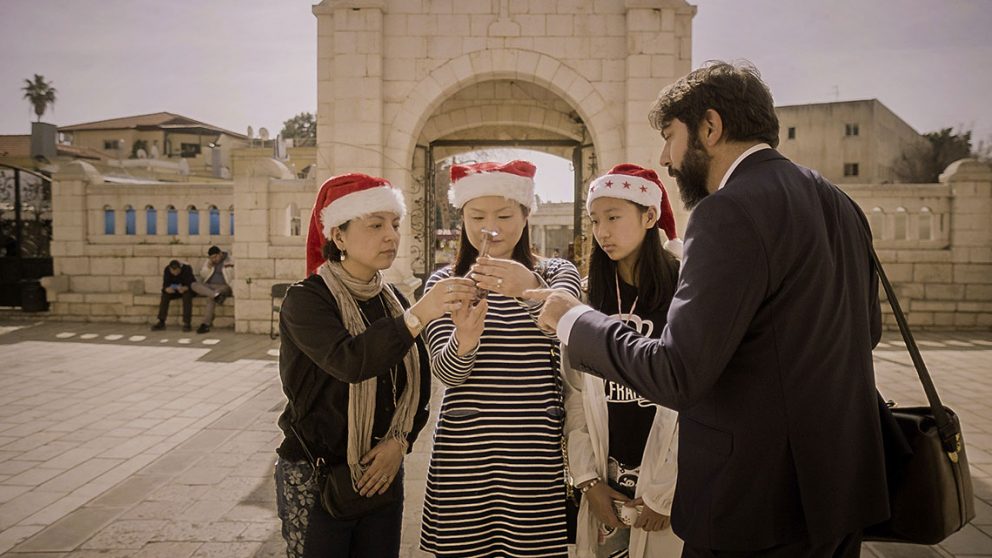
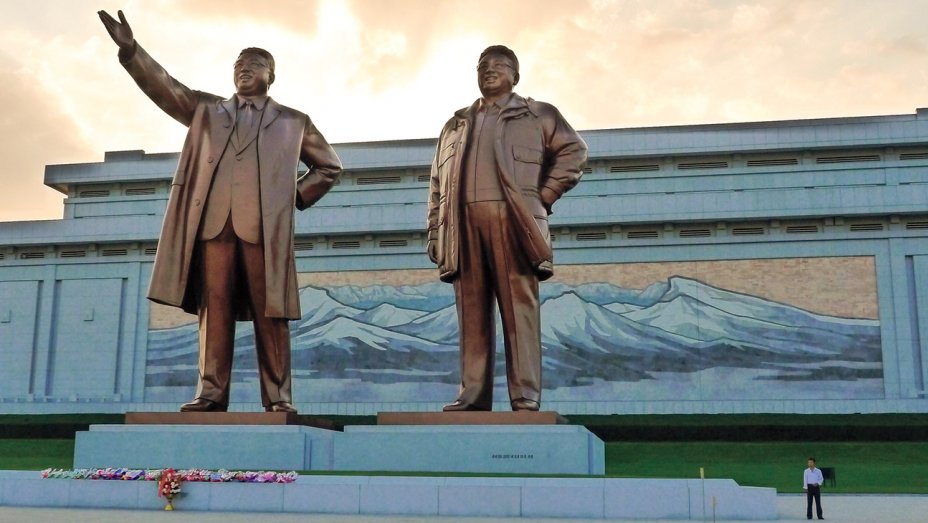
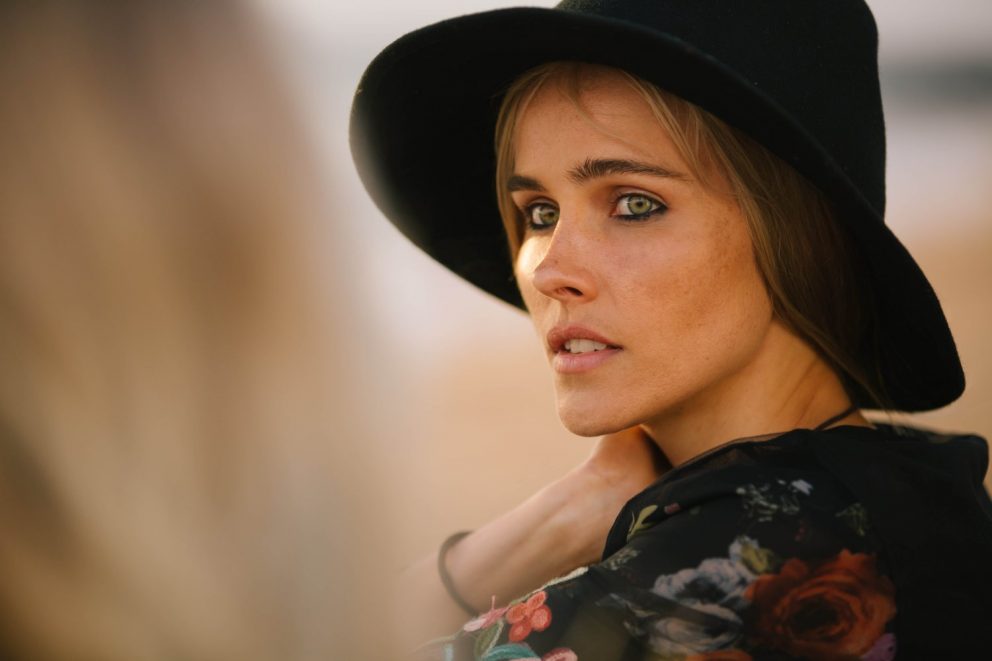
comments